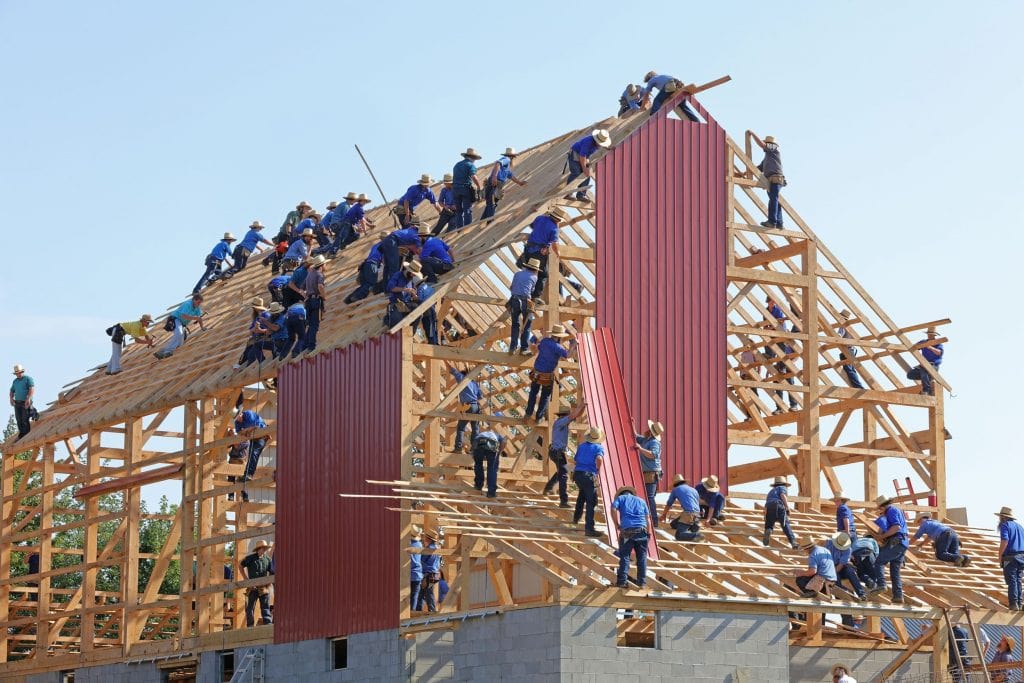Collaboration in the time of Coronavirus
By Pelican consultant Emma Scott
Necessity truly is the mother of invention, and if the COVID-19 pandemic has shown us anything it’s that we can achieve great things when we work together.
Perhaps the most important and impressive example of this took place in East London, where the ExCeL exhibition centre was converted into the temporary NHS Nightingale hospital in just nine days.
Around 200 soldiers from the Royal Anglian Regiment, Royal Gurkha Rifles, NHS staff and contractors, worked long shifts together to transform 87,328 square metres of exhibition space into a fully-functioning 80-ward hospital.
Away from NHS frontline, businesses in the food industry have also been working together for the greater good. Competitors Bidfood and Brakes decided to pool their resources and expertise to deliver the government’s pledge to provide the country’s most vulnerable with essential food during isolation.
There have also been examples of businesses putting their skills and equipment to alternative uses in order to simultaneously stay open and serve their communities.
Several distilleries in the UK and US are using the alcohol they produce to make hand sanitiser, with some giving it away free to those who need it. Luxury goods brand LVMH also announced it would use its perfume production lines to start making hand sanitiser.
The VentilatorChallengeUK has brought together companies as diverse as McLaren, Ford, Airbus and Meggitt to build thousands of new ventilators for the NHS
So how can you embrace this spirit of collaboration for the benefit of your business, your customers and your community?
Adapt to survive
Just as restaurants have focused their effort on take-away services and wholesalers have started making domestic deliveries, think about ways you can continue to deliver a valuable service whilst adhering to social distancing. This could mean reaching out to businesses you’ve not worked with before, such as couriers.
You should also consider if you can deliver your service online in the same way gym and dance classes are being run via Zoom or Microsoft Teams. Think about local companies that could help facilitate this.
Break from the norm
Your traditional working practices have likely been turned upside down and, like any change, it takes time to get used to. Overcoming the challenges of a scattered workforce can seem daunting, but you can also see these changes as an opportunity to collaborate more effectively with your team and others in your industry.
With home working comes video conferencing and increased use of cloud-based software, both of which make it easier to share ideas with more people, wherever they are.
Collaboration post-pandemic
What are the implications long-term as we continue to embrace a more collaborative style of working after the Coronavirus cloud clears?
- People will be more accepting of working together for a shared goal.
Yes, there will always be competition, but competitors will increasingly become collaborators. People who share ideas and best practice that benefit whole industries rather than individual businesses will be the long-term winners.
- Digital collaboration and delivery will be accelerated.
Once team members become accustomed to accessing projects and tasks remotely, communication will happen in real-time, not just with your team but collaborators in any location, all communicating in real time rather than relying on email.
It will become easier to align goals, access up-to-date information and share ideas across teams. This in turn will reduce project turnaround time and improve speed to market. If you don’t retain and build on the new working practices adopted during the pandemic, your organisation will be left behind.
- Businesses may adopt multiple routes to market.
Having been forced to explore alternative routes to market, businesses may expand the ways they deliver their services. Many garden centres for example – which feared they would go out of business early in the lockdown period – are experiencing a surge in demand after offering home deliveries for the first time.
What does this mean for your marketing?
Forget pitching and start collaborating. The pitching process doesn’t deliver the best results for organisations or agencies. Instead, connect with agencies which have a proven track record in your sector and invite them to collaborate with you with a view to sharing in your success.
In the words of Henry Ford: “Coming together is a beginning, staying together is progress, and working together is success.”
Pelican Communications is a specialist in the environment & CSR, food, packaging & logistics and trade association sectors and offers a range of services such as strategy, design, content creation, public relations and people development. Contact us for marketing and communications expertise.
